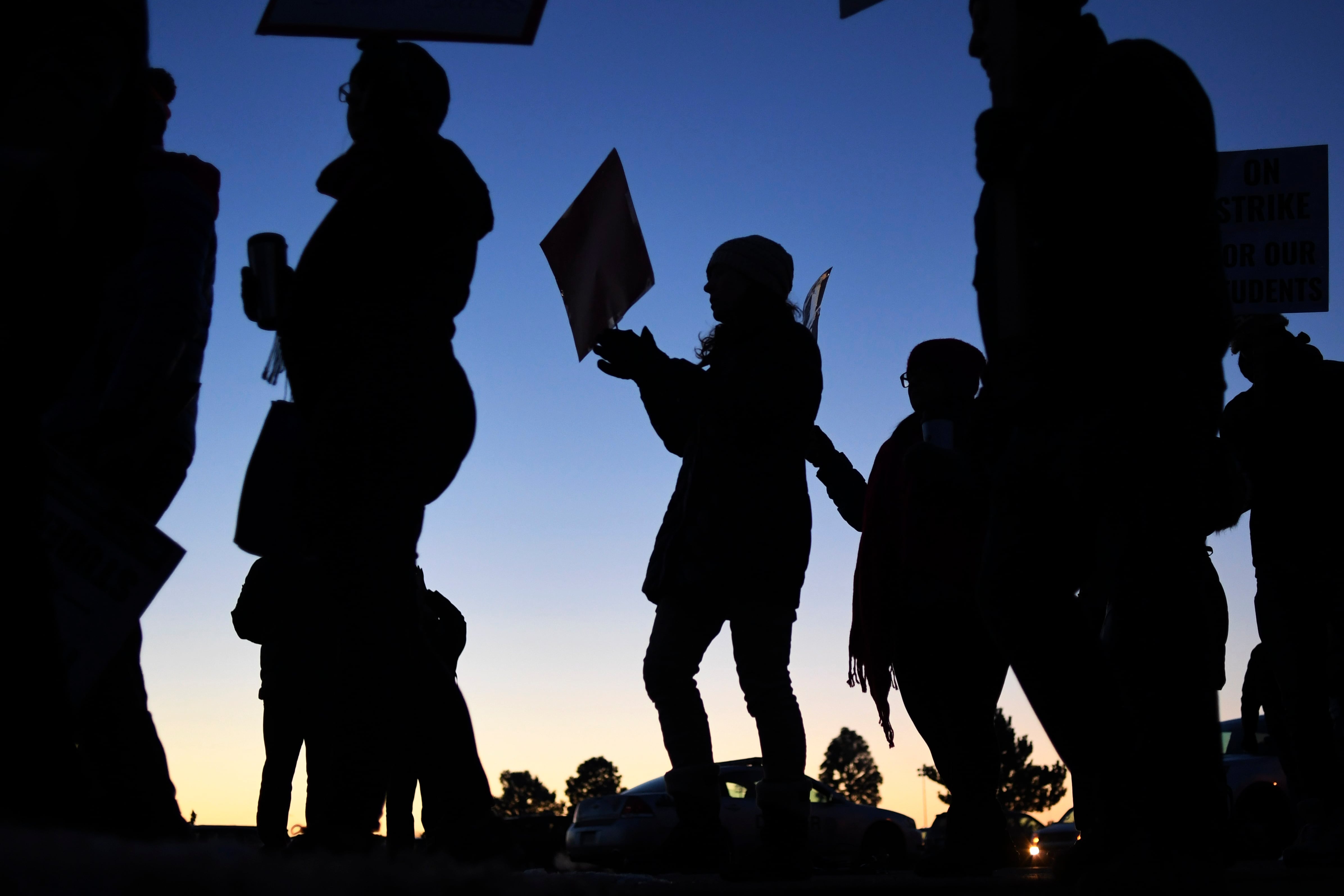At a time when educators’ jobs have become more difficult because of the pandemic, Indiana’s largest teachers union is calling on lawmakers to restore the right to bargain over working conditions, such as hours, prep time, and class sizes.
The Indiana State Teachers Association, which represents nearly 40,000 educators, said that some districts are deciding how to respond to the coronavirus without substantive input from educators. If unions had the right to bargain for better working conditions, more teachers would have a voice in those decisions.
“The right to come together to negotiate the terms of our work allows us to create better learning conditions for our students and better workplaces for ourselves and those who will follow us as educators in the future,” ISTA President Keith Gambill said at a union press conference Monday ahead of the start of the legislative session.
The state stripped Indiana teachers unions of the right to bargain over most work conditions in 2011, as part of a controversial overhaul of collective bargaining.
It’s not clear whether the Republican majority, which pushed to restrict collective bargaining, would seriously consider reinstating some bargaining rights.
At a legislative preview hosted by the Indiana Chamber of Commerce Monday, lawmakers didn’t address bargaining rights, but did touch on several other education issues, including the need to help students catch up after months of disruption in their education and how to fund virtual instruction.
The coronavirus pandemic is sparking new frustration among educators after a year of pressure on lawmakers to boost school funding and teacher pay.
Pointing to a union survey, Gambill said that 95% of teachers said their workload increased and 86% said they were more stressed during COVID.
Indianapolis teacher Jack Hesser said that while all jobs are more stressful during the pandemic, expectations of teachers have dramatically changed.
“We’ve doubled and tripled the workload given to our educators,” Hesser said. “We’ve given our teachers this impossible choice between … work outside of school for free or fail our students.”
A middle school science teacher from Richmond schools, Tiauna Washington said she spends hours each Sunday at school preparing for the week by making copies, making videos, setting up labs, and planning both in-person and virtual lessons.
“This combination of refusing to pay teachers what they are worth and expecting them to do more and more with less and less is just totally unsustainable,” Washington said.
ISTA is also continuing calls to pay Indiana teachers more, to start salaries at $40,000 per year, and for the state to increase funding for education.
The movement to increase teacher pay and education funding in Indiana gained momentum last year, but whether teachers will be able to sustain pressure on lawmakers is uncertain. A year ago, a Red for Ed rally at the statehouse drew so many teachers that districts canceled school for about half the state’s students.
Lawmakers, however, delayed substantively addressing the issue until the biannual budget is crafted in 2021. Amid the economic toll of the pandemic, the union may have a harder time winning an increase in school funding or teacher pay despite vocal support from the governor.





